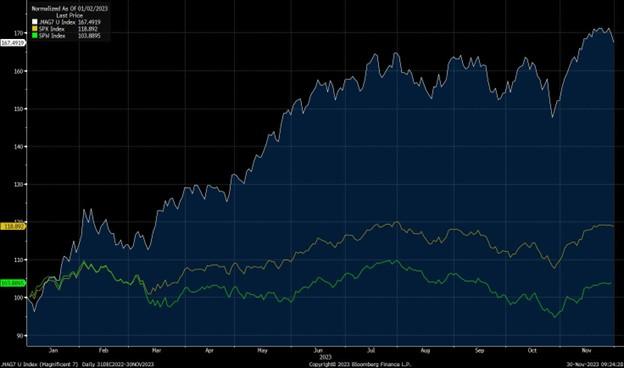
The Why's of Investing
As investors, we spend a lot of time thinking about the what and the how of investing. There are various investment styles and different strategies focused on growth, income, or both. There are investments that have lots of liquidity or those with little liquidity. There are investments focused on risk mitigation and hedging and those that focus on return enhancement. There are those that are great for diversification and those that are less helpful for diversifying.
But what are the “why’s” of investing? Not the why’s of retirement planning or education planning or philanthropy. We get those “why’s.” But why should an investor buy or sell an investment. Sometimes we hear that it’s because of performance or because of the expenses. Yet, in hindsight, investors often buy investments with high expenses and poor performance. Why do they do this? Are they just unlucky or is there something behind it?
It could be a similar reason why investors may now be investing more into the magnificent seven – the seven largest stocks by market capitalization in the S&P 500 (Alphabet, Amazon, Apple, Meta, Microsoft, Nvidia, and Tesla). Many of us know from watching or reading the financial media that these stocks are up more than 67% for the year while the S&P 500 is up 19% and the equal-weighted S&P 500 is up just 4% (see chart below).
Source: Bloomberg; Normalized Price Return, Magnificent Seven (white line), S&P 500 (yellow line), S&P 500 Equal Weight (green line)
The answer for too many may be the fear of missing out (FOMO). It could be an investment manager that has been underweight in the hottest performing areas and is underperforming. It could be a DIY investor who hears constantly of the “Mag 7” and capitulates to buy. Capitulation, or throwing in the towel, isn’t always about selling at the possible worst time. It could be caving in to buy when something is already bid up significantly. In either case, sizzling performance, heightened positive press coverage, or people promoting it on social media should never be a reason in and of itself to buy or sell a security. Please don’t misunderstand, we believe that momentum investing can work alongside other investing styles, if implemented as part of a disciplined process. But this is a function of the mind, not the heart.
Emotions are best left out of the investment decision-making realm. Investors should always have a rationale for buying or selling a security and a simple note on performance is not good enough. It can be based on a macro-economic outlook, fundamentals, valuation, technicals such as trend or momentum, factors such as momentum or minimum volatility or value or it could be on an algorithm looking at certain patterns. But all of these have one thing in common – they are rules-based and systematic in nature. There is no emotion involved. Such an approach or a combination of several of these approaches should always be used as the “why” for buying or selling an investment.
This approach, that uses the mind over the heart, can also be applied to selecting an investment manager or even selecting an advisor.
When selecting an investment manager, an investor can look at things like Sharpe ratio, upside capture, downside capture, or standard deviation in addition to performance or just the underlying securities. They can also look at expenses, turnover, and how well a certain position adds diversification to the portfolio. Their should be a process and a discipline to hire the manager as well as to fire the manager. Emotions should not play a part.
Similarly, investors can hire an advisor based on certain criteria. Are they a fiduciary? Do they offer financial planning? Do they hire investment managers based on criteria such as noted above? Do they perform services such as tax management and rebalancing or a plan to diversify concentrated stock positions? Do they keep the investment plan in sync with the financial plan? Are they compensated fairly for the services they are providing?
Again, these questions don’t look at things that can drive emotions higher or lower, such as performance or how flashy their office is or how sparkling their personality is. It’s an emphasis on mind over heart and being rules-based.
As we wrap up the year in the next few weeks, please remember the “why’s” of investing, whether that’s buying an individual security, hiring an investment manager, or hiring an advisor.
Jim Worden is an Investment Advisor Representative of WCG Wealth Advisors, LLC, a Registered Investment Advisor doing business as The Wealth Consulting Group. He is not affiliated with LPL Financial, LLC.
Jim is also an Officer and Investment Advisor Representative of Straightway Financial, LLC, a Registered Investment Advisor. Through Straightway, Jim offers research and consulting services to Registered Investment Advisors and other financial services companies. WCG Wealth Advisors, LLC is a separate entity from Straightway Financial, LLC and its clients.



